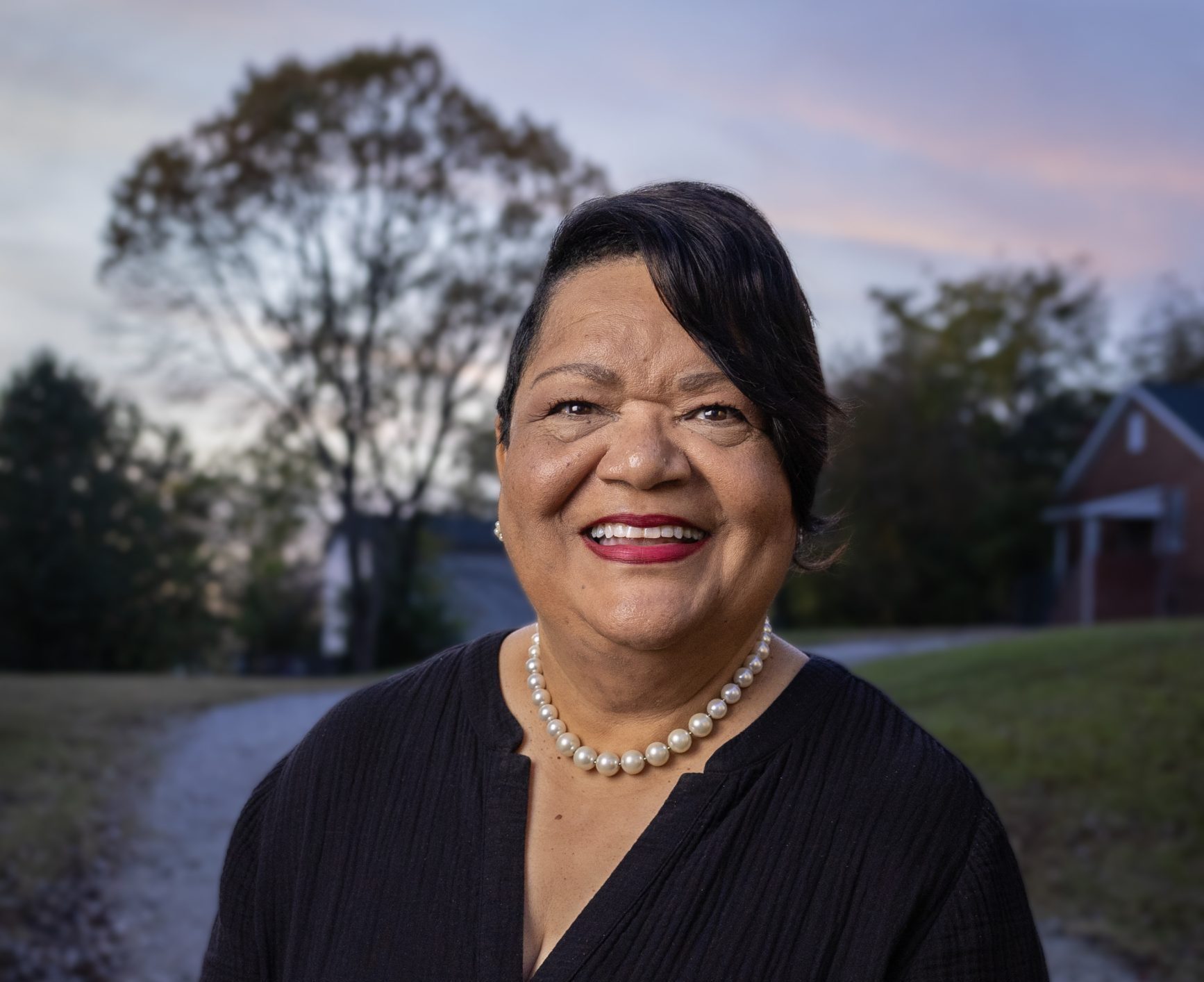By Ashari Cain
This article is part of a series of Durham community leader profiles.
A Hayti community upbringing
Graduate student and Reverend Angela Taylor grew up in the historic Hayti neighborhood.
“Black people were not allowed to get treatment at Duke Hospital…we were just the servants of the doctors,” she said. Duke’s discriminatory education and healthcare practices were among the earliest of Reverend Angela’s memories growing up. Her outlook has included a multitude of changes as she celebrates ten years with the Duke institution as a teaching assistant in homiletics and has been accepted into their doctoral program. Through teaching, story-telling and serving within Durham, Reverend Angela’s experience in her hometown has transformed in a thoroughly personal and impactful way.
Reverend Taylor is the third generation of women in her immediate family to possess such an active role in the church. Although she is pursuing a Doctor of Ministry in Christian Leadership, her work, teaching and studies has transcended numerous religious denominations and began long before she attended any university. “The women in my family just naturally fell into leadership roles at church and so did I.”

Fellowship provides new way to support community
The graduate program at Duke Divinity School offers a practical doctoral degree that allows church leaders to continue being active in their ministry and community roles. This summer Reverand Taylor took on community capacity-building work through a fellowship funded by The Duke Endowment and administered by Duke Community Affairs. The fellowship embedded Reverend Taylor with DurhamCares, a nonprofit committed to equipping faith-based organizations and their neighbors with equitable, inclusive and collaborative opportunities through a holistic strategy.
In response to requests DurhamCares had been receiving, Reverend Taylor was tasked with creating a robust resource guide to connect with mental health, food insecurity and affordable housing programs. She has also been responsible for compiling an updated list of active churches and their spaces, a task that grew out of the pandemic which had a profound effect on the church landscape. Since DurhamCares is a key connector for numerous faith-based groups and the communities they serve, increasing the visibility of these physical churches and resources was essential.
“It’s a challenging, ever-evolving project and having extra capacity has been valuable to us and Reverend Angela,” said DurhamCares’ Executive Director Reynolds Chapman.
The relationship between Reverend Taylor and Chapman is just as purposeful as their projects. Their shared values have amplified the meaning of their work. “She believes in the resources for her city, and it’s been nice having shared values,” said Chapman.
The two had met before. Reverend Taylor and her mother serve as guides with the DurhamCares Pilgrimage program. Each pilgrimage is a local tour that helps participants connect their personal journey with the place they live – Durham. Angela was surprised to learn people wanted to hear more about the place she came from and when she saw the interest, she recruited her mother to provide her perspective.
Resilience among adversity
As Reverend Taylor embarks on her doctoral journey, she recalls how segregation consumed the healthcare and education opportunities for Black residents of the historical Black Wall Street. “Hayti was full of people employed to work in the homes of the doctors at Duke, and these were the same people who couldn’t even go to Duke if they were sick,” said Reverend Taylor.
“Just being a Black female instructor is impactful for me. I want to be an example, especially for my Black students to let them know this is what you can achieve and beyond.”
– Reverend Angela taylor
Now in her second year of graduate school and celebrating a decade as a teaching assistant, both at the Duke Divinity School, her experience with the institution has been transformative.
“Your history impacts your future”
Reverend Angela Taylor embodies the story embedded in the brick of Durham. It is a historic and present sphere of complexity, change, resilience, and diversity. Despite growing up surrounded by a system that once brought oppressive barriers to her and her community, Reverend Taylor has dedicated her life to serving and loving Durham, continuously surpassing the limitations of its past.
“Stories are so important for remembering your history, because your history certainly impacts your future,” said Reverend Taylor.
Photo credit: Jared Lazarus/ Office of Communications and Marketing, Duke University
2025 Community-Engaged Fellowship Applications Close March 15.
2025 summer fellowships are provided by the Duke Center for Community Engagement, to support doctoral students working directly with local community organizations.
Learn More



